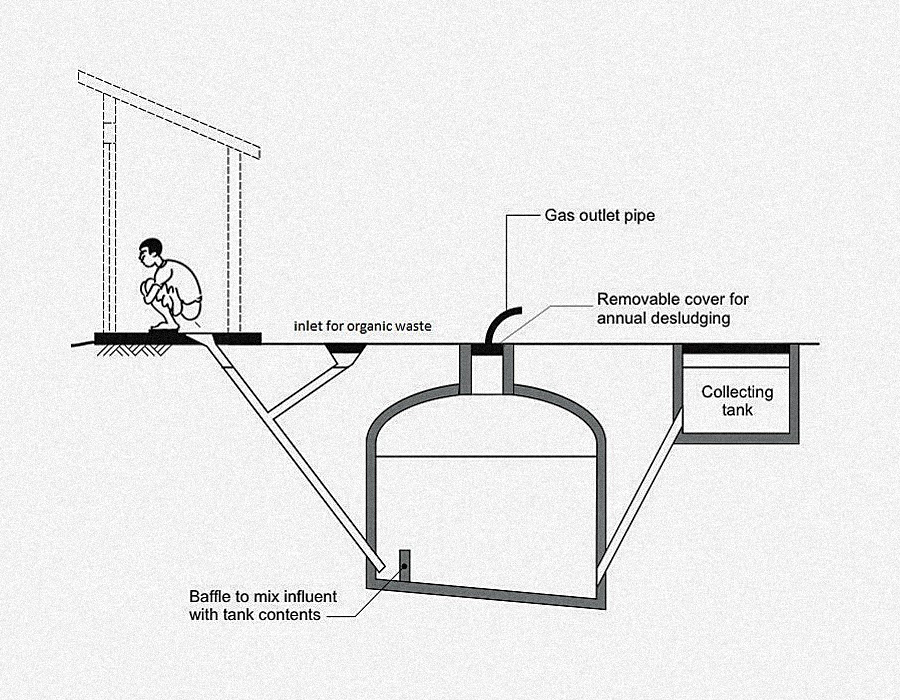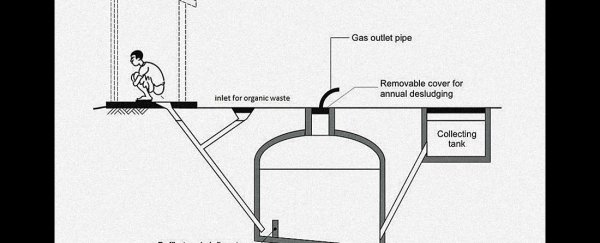It's not a very appetising idea, but students in Kenya have found a way to cook their school's food with poop.
Pit toilets, which are basically holes in the ground, are the most common type of toilet across rural Kenya. Of course, they're not the most hygienic option - with the system often getting backed up and also contaminating nearby waterways. And, as you can imagine, it also smells pretty awful.
At the Maseno School, a teenage student decided to do something about it, and came up with the ingenious ideas of turning the school's sewage into biogas that could power the kitchen. Previously, the food was cooked using wood fires, which filled the building with toxic black soot and also used up precious wood resources.
"My inspiration was drawn from the pressing demand for a clean, renewable sustainable source of fuel," Leroy Mwasaru, the 17-year-old student who led the project, told Adele Peters at Co.Exist. "In the African continent we have lots of resources that masquerade as 'waste'."
Mwasrau and a group of fellow students started researching biodigesters, which are chambers underground that collect human waste and use microorganisms to turn that waste into a renewable fuel.
"We were out to make ours more flexible and better," Mwasaru told Peters.
They entered their idea into Innovate Kenya, a national competition that aims to empower Kenyan youth to solve challenges in their communities, and ended up winning enough money to build two prototypes.
They're now using the second version to collect waste from the school's toilets, as well as the school's cattle, and then turn it into biogas that's fed straight into the shoal's kitchen.
They're also working on filtering urine out of the process, as it makes it less efficient, and eventually want to scale up the device so that it can process the waste of all 1,200 students at the school. This will cost around US$85,000, but it can hopefully save that much in fuel savings.
The team also hopes to create a smaller version that works in houses and can also be used around the country to help improve sanitation as well as provide a sustainable fuel source.
See a diagram of their set-up below:

Source: Co.Exist
